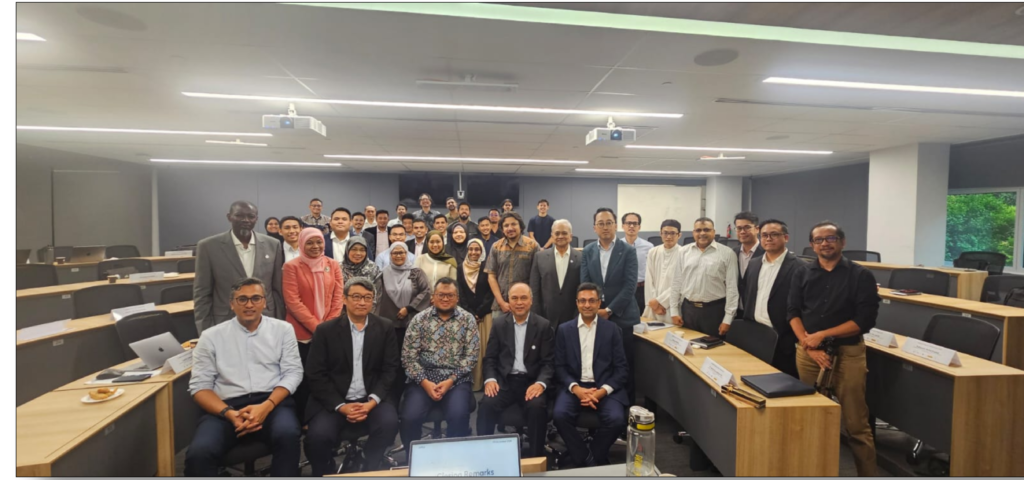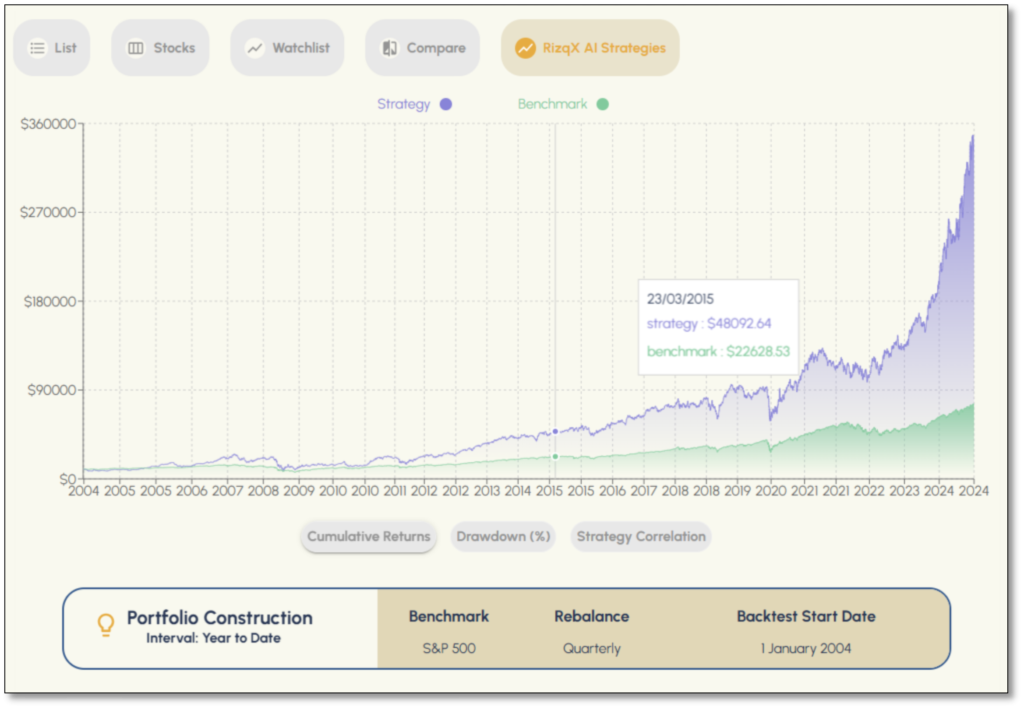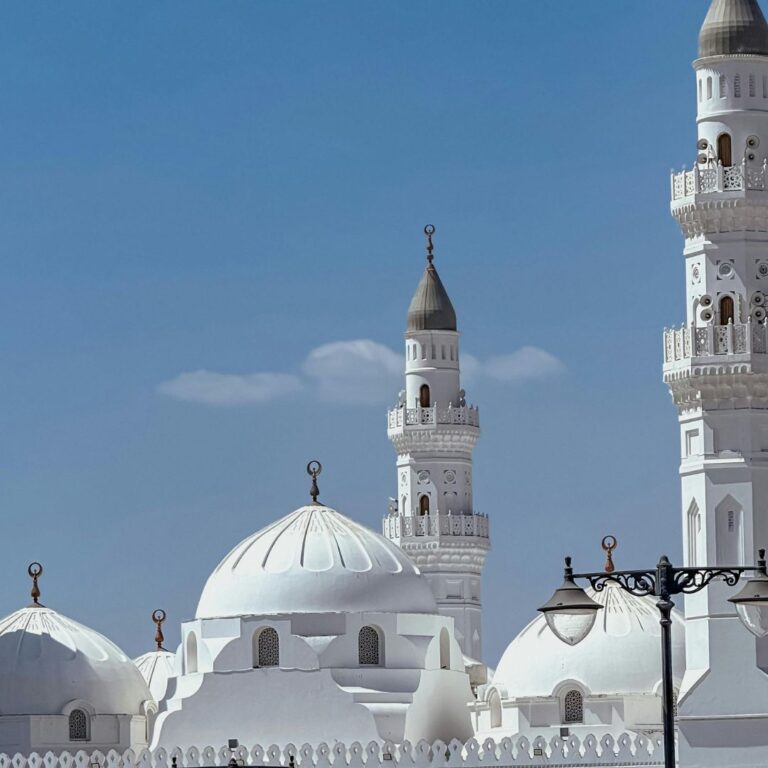Written by:
- Muhammad Ridhwaan Radzi is the Managing Director of Islamic Finance Singapore Ltd, Singapore.
- Zul Hakim Jumat is the Islamic Wealth Specialist at Maybank Singapore Ltd.
They can be reached through contact@islamicfinancesg.com
Sowing The Seeds Of Success: Strategic And Organic Growth In Islamic Finance In Singapore
Singapore, a globally recognised financial hub, continues to make strides in advancing Islamic finance despite its niche presence in the local financial ecosystem. Renowned for its regulatory excellence, innovation, and strategic economic positioning, Singapore presents a unique narrative within the global Islamic finance industry.
The growth of Islamic finance in Singapore has been driven by ground-up initiatives and organic efforts from key industry stakeholders. The 2024 Singapore Islamic Finance Forum (SIFF), now in its second year and organised by Islamic Finance Singapore Ltd (IFSG) with Maybank Singapore and World Scientific as key partners, marked a pivotal moment for the sector. The forum facilitated vital conversations among practitioners, resulting in resolutions to enhance talent development, improve public literacy, foster regulatory innovation, and prioritise Shariah-compliant financial products. These grassroots efforts have established a strong foundation for innovation and sustainable growth.

A notable development within this ecosystem is the rising prominence of Islamic Wealth Management (IWM). While not a direct outcome of SIFF, the sector’s expansion reflects the organic efforts of institutions like Maybank Singapore (Maybank), which has strategically championed IWM as a cornerstone of its offerings. Achieving a remarkable 107% growth in its IWM business in 2024, Maybank’s initiatives focus on addressing market gaps, as Singapore previously lacked end-to-end Shariah-compliant wealth management solutions. By aligning its offerings with the five pillars of IWM—Wealth Creation, Accumulation, Protection, Purification, and Distribution—Maybank and similar institutions cater to the evolving financial needs of both Muslim and non-Muslim clients. This demonstrates Singapore’s capacity to transform itself into a regional hub for IWM, driven by industry-led initiatives.
As Singapore steps into 2025, its focus on aligning Islamic finance and wealth management with broader innovation and sustainability goals positions the nation as an emerging bridge between East and West in the Islamic financial landscape.
2024 MILESTONES: FOUNDATIONS FOR STRATEGIC GROWTH
In 2024, Islamic finance in Singapore solidified its foundations through actionable milestones and impactful collaborations. The year showcased Singapore’s enduring appeal to global investors, with S$5.4 billion in fixed asset commitments secured in the first half alone. Amidst this economic vibrancy, Islamic finance made significant strides, driven by both strategic initiatives and grassroots efforts.
The second Singapore Islamic Finance Forum (SIFF) emerged as a critical platform for advancing the sector. Bringing together key stakeholders from across the financial ecosystem, the forum facilitated industry-wide discussions that culminated in five pivotal resolutions:
- Talent Development: Launching scholarships and internships to address skill gaps and foster expertise.
- Regulatory Collaboration: Establishing frameworks for regular engagement with regulators to streamline compliance.
- Public Literacy Campaigns: Enhancing awareness through workshops and digital resources.
- Shariah Governance: Forming working groups to ensure cohesive and consistent standards.
- Islamic Product Prioritisation: Promoting a collective commitment to prioritising Shariah-compliant solutions.
These resolutions underscore a long-term vision for Islamic finance in Singapore, rooted in education, governance, and innovation. They reflect the sector’s growing focus on building a robust ecosystem that aligns with Singapore’s broader economic strengths.
In alignment with these strategic goals, Maybank Singapore made notable strides in 2024, launching several key initiatives aimed at addressing market gaps and enhancing client experiences. On 15 July 2024, the bank introduced the Avaloq Islamic platform, a cutting-edge solution specifically designed for high-net-worth clients. This platform offers seamless, end-to-end Shariah-compliant wealth management solutions, elevating bespoke service experiences for affluent clientele.
Following this, on 10 October 2024, Maybank expanded its product suite with the Islamic Dual Currency Investment. This innovative offering provided Shariah-compliant opportunities for clients seeking short-term gains through foreign exchange markets, further diversifying investment options.
The bank culminated these efforts with the launch of the Maybank Saver Series 2024 I-Structured Deposit on 26 October 2024, following a collection period that began on 14 October 2024. This product addressed a longstanding gap in the market, reintroducing Shariah-compliant structured deposits to Singapore after years of absence. By offering compelling profit potential, the 6-year callable deposit was specifically designed for risk-conscious investors, making it a pivotal addition to the diversification of Islamic investment solutions available in the market.
Fintech innovation further bolstered the sector, with platforms like RizqX employing AI-driven tools to optimise Shariah-compliant investments. These developments, alongside growing alignment with sustainable and ethical finance practices, exemplify Singapore’s ability to leverage its dynamic financial ecosystem for impactful change.

As 2024 drew to a close, these foundational efforts positioned the Islamic finance sector for even greater achievements in the years ahead, setting the stage for transformative growth and regional influence.
2025 OUTLOOK: STRATEGIC VISION AND INNOVATION
As Singapore enters 2025, its financial landscape is poised for transformation, shaped by advancements in technology, sustainability, education, and cross-border collaboration. These developments provide fertile ground for Islamic finance to expand its influence, reinforcing Singapore’s position as a hub for value-based financial solutions.
A key initiative driving regional integration is the Johor-Singapore Special Economic Zone (JS-SEZ). This collaboration aims to deepen economic ties and create pathways for industries, including Islamic finance, to scale operations and access broader markets. The SEZ represents a significant opportunity for financial institutions to enhance cross-border offerings, fostering innovation and inclusivity in the sector.
Technological progress will also play a pivotal role in shaping Singapore’s economic future. The nation’s port is set to become the world’s first to fully implement digital bunkering, significantly enhancing efficiency and transparency in maritime operations. Complementing this, the government has allocated an additional S$440 million to support deep-tech startups under the Startup SG Equity scheme, enabling early-growth companies to thrive. These advancements not only bolster Singapore’s reputation as a leader in innovation but also open avenues for fintech-driven Islamic financial products to align with cutting-edge technology.
Sustainability continues to be a cornerstone of Singapore’s development strategy. The nation’s leadership in green energy and AI-driven environmental initiatives, highlighted during the Singapore Week of Innovation and Technology (SWITCH) 2024 conference, underscores its commitment to sustainable growth. Islamic finance, with its inherent emphasis on ethical and socially responsible investing, is well-positioned to support and benefit from this green finance agenda, introducing Shariah-compliant solutions that resonate with environmentally conscious investors.
Education remains another pillar of Singapore’s long-term vision. The establishment of the Singapore Islamic College (SIC), slated to open in 2028, represents a significant milestone in nurturing talent for the Islamic finance industry. Partnering with institutions such as Dar al-Ifta in Egypt, Al-Qarawiyyin University in Morocco, and the University of Jordan, the SIC will offer a multidisciplinary curriculum that equips future leaders to address the evolving needs of the sector. This initiative reflects Singapore’s forward-looking approach to capacity building and intellectual capital development.
Despite these advancements, Singapore will still face challenges in navigating global economic uncertainties. Inflationary pressures persist, with the nation being named the “World’s Most Expensive City” for the ninth time in 11 years by the Economist Intelligence Unit. Furthermore, the anticipated return of protectionist trade policies under President Trump’s administration could disrupt global supply chains and increase production costs. Recognising these risks, Singapore’s policymakers are preparing Budget 2025 measures to ensure economic resilience while addressing the needs of businesses and residents.
As Singapore positions itself for a transformative year, Islamic finance is expected to play a critical role in aligning with the nation’s strategic priorities. By leveraging its synergies with sustainability, innovation, and regional collaboration, the sector is well-placed to drive impactful change and solidify Singapore’s status as a global leader in Islamic finance.
INSTITUTIONAL HIGHLIGHTS: DRIVING PROGRESS ACROSS THE ECOSYSTEM
In 2024, Singapore’s Islamic finance sector continued to flourish, with key institutions introducing innovative solutions to address market gaps and foster growth. These efforts spanned banking, asset management, fintech, legal services, and more, showcasing the sector’s breadth and depth.
Banking Sector Innovations
Maybank Singapore further cemented its role as the Group’s regional offshore Islamic Wealth Management (IWM) hub, offering end-to-end solutions across the five pillars of IWM. As of November 2024, the bank achieved an impressive 107% growth in its IWM business, with its base of Islamic investment clients expanding by 44%.
Looking ahead to 2025, Maybank plans to enhance its IWM offerings by launching tools such as a Zakat and donation dashboard, aimed at improving wealth purification for clients. The bank also intends to introduce private Wakaf structures under legacy planning, allowing clients to contribute to community enrichment while safeguarding generational wealth. Furthermore, Maybank is preparing to roll out innovative products, including Islamic Structured Notes and Value-Based Insurance, catering to the increasing demand from mass affluent clients for Shariah-compliant financial solutions.
Meanwhile, CIMB Singapore is making strides to align sustainability with financial inclusion. In July 2024, the bank introduced the SME Sustainability-Linked Loan/Financing Programme (SME SLL/SLF Programme), designed to support SMEs as they embark on their sustainability journeys.
At the same time, Deutsche Bank continues to strengthen its role in the regional Islamic finance landscape. Its Singapore entity is set to expand offshore Shariah-compliant custody services. In addition, the bank’s trustee in Malaysia has been appointed for the world’s first Waqf-featured ETF, launched in Malaysia.
Takaful and Insurance Milestones
Etiqa is poised to launch Singapore’s first family Takaful product, which is fully aligned with local regulations. This marks a significant milestone in the advancement of Shariah-compliant financial products, meeting the growing consumer demand for ethical investment and protection solutions.
Asset Management Advancements
Chicago Global Capital, a MAS-licensed fund manager, collaborated with Malaysia’s Kenanga Investors Berhad to launch an AI-driven Shariah-compliant fund. This fund employs big data analytics to deliver sophisticated screening and evaluation of stocks, advancing investment opportunities for clients. Similarly, abrdn Asia Limited’s Islamic World Equity Fund outperformed its benchmark with a 14.9% return as of 31 October 2024, although it is not yet distributed in Singapore, reflecting the potential for future market entry.
Fintech Innovations
Fintech continues to be a key driver of Islamic finance growth in Singapore, offering innovative solutions tailored to the Muslim community. Platforms like RizqX leverage AI-driven portfolio optimization tools, enabling smarter and more informed investment decisions across Southeast Asia. Takadao’s LifeDAO, which began pre-enrollment in late 2024, is set to launch Shariah-compliant, community-driven protection solutions by early 2025, marking a milestone in collaborative Islamic financial services.
Arabesque’s Portfolio Dragon, licensed in Singapore, integrates predictive analytics and ESG data to optimize global portfolios, with a full-scale rollout planned for 2025. Meanwhile, GivingFridays.com will expand its revolutionary Islamic giving platform, incorporating AI and gamification to inspire impactful and consistent charitable contributions. Its automated Friday and Fajr donation scheduler already provides seamless support for mosques and charities, redefining accessibility in philanthropy.
In the realm of precious metals, Hugosave recorded a 1.5x growth in gold investments year-to-date, as gold prices rose over 30%, significantly outpacing Singapore’s core inflation rate of ~2.5%. Gold continues to safeguard savings against inflation and market volatility, reinforcing its appeal as a stable and ethical investment option.
Legal and Advisory Expertise
The legal and advisory sectors continue to play a pivotal role in supporting Singapore’s Islamic finance ecosystem. Dentons Rodyk & Davidson LLP was honored as the “Asset Management and Islamic Funds Law Firm of the Year” at the 2024 Annual Islamic Finance News Awards, recognized for its excellence in Shariah-compliant asset management and fund structuring. Similarly, I.R.B. Law LLP plans to expand its offerings in 2025, introducing innovative frameworks in Shariah-compliant estate planning, corporate finance, and dispute resolution to drive ethical growth and resilience.
On the advisory front, Ethikom Consultancy, a Singapore-based firm specialising in regulatory compliance, has been instrumental in supporting Shariah-compliant fintech platforms, including RWA issuers, InsurTech, P2P financing, and wealth management platforms. Recognised for its contributions, Ethikom received the “Consultant of the Year 2024” award from ALB/Thomson Reuters.
Financial Advisory and Brokerage Expansion
Advisory firms like Ascent Islamic, in 2024, has successfully enhanced financial literacy for the public through targeted programs, including a mobile app and courses for children. Moreover, they plan to grow recruitment, implement leadership programs, and drive community initiatives to enhance financial planning excellence within the community.
Brokerage services also grew, with Interactive Brokers providing halal investment access to over 150 markets, and iFAST Global Markets achieving record profits while introducing innovative services like bond marketplaces and debit card options.
Lifestyle and Consultancy Growth
In 2025, Bitsmedia will empower the global ummah through education, community-building, and Shariah-compliant financial solutions, fostering stronger ties between faith and finance. While Hayba plans to build on its 2024 achievements by expanding business units, strengthening training programs, and enhancing global partnerships to advance Islamic education and consultancy.
Venture Capital Innovation
Hasan VC has taken a significant step in advancing halal venture capital by launching a fund supported by angel investors from 30 countries. In 2024, the firm funded 12 ethical startups, showcasing how Islamic finance can foster impactful innovation and empower regional entrepreneurs. Similarly, Quest Ventures is actively investing in Muslim-focused businesses that leverage technology to scale their offerings. Notable investments include Ethis, a Shariah-compliant crowdfunding platform in Malaysia; Kapital Boost, an Islamic peer-to-peer lending platform for SMEs in Indonesia; and Billz, a retail management platform for SMEs in Uzbekistan.
These initiatives underscore the diverse and dynamic growth of Singapore’s Islamic finance ecosystem. By addressing market demands, integrating advanced technology, and expanding regional influence, the sector continues to build a competitive and value-driven landscape for ethical financial services.
| Product launches in 2024 | Upcoming launches in 2025 | ||
| Sector | Name: | Launched by: | |
| Asset Management | Chicago Global Responsible Strategies | Chicago Global | Takaful in Singapore |
| Waqf Featured ETF | Eq8 Capital Sdn Bhd (Deutsche Bank as Trustee) | Life Insurance built on the blockchain | |
| Lion Global Enhanced Liquidity Fund | Lion Global | Zakat & Donation dashboard | |
| Banks | Avaloq Islamic Platform | Maybank Singapore | Private Waqf Structures |
| Islamic Dual Currency Income Investment | ZakatX | ||
| Structured Deposit products | 3 New funds | ||
| SME Sustainability-Linked Loan/Financing Programme | CIMB | Portfolio Financing | |
| Fintech | RizqX Platform | RizqX | |
| Portfolio Dragon | Arabesque | ||
| Hugosave Shariah Compliant products | Hugosave | ||
| Venture Capital | Hasan VC Fund | Hasan VC | |
Figure 3: Summary of Product launches in 2024 and upcoming launches in 2025
CONCLUSION: A VISION FOR THE FUTURE
Singapore’s Islamic finance sector stands at the cusp of a transformative phase, driven by strategic initiatives, innovative products, and a robust commitment to addressing market gaps. With key institutions like Maybank leading the charge, the sector is not only scaling in terms of offerings but also redefining how Islamic finance integrates with technology, sustainability, and regional collaboration.
As 2025 unfolds, developments such as the establishment of the Johor-Singapore Special Economic Zone and the upcoming Singapore College of Islamic Studies underscore the nation’s long-term vision for inclusive growth and talent development. Simultaneously, advancements in fintech, Takaful, and Shariah-compliant wealth management signal a sector that is both dynamic and resilient, capable of adapting to global challenges while creating new opportunities.
With its foundations firmly rooted in innovation, governance, and education, Singapore is uniquely positioned to serve as a nexus connecting the dynamic growth of Islamic finance in Asia with the established markets of the Middle East and beyond. As stakeholders continue to align their efforts with national and regional priorities, 2025 promises to be a year of impactful progress and global recognition for Singapore’s Islamic finance ecosystem.
Islamic Finance and Banking in Singapore: Country Report 2024








